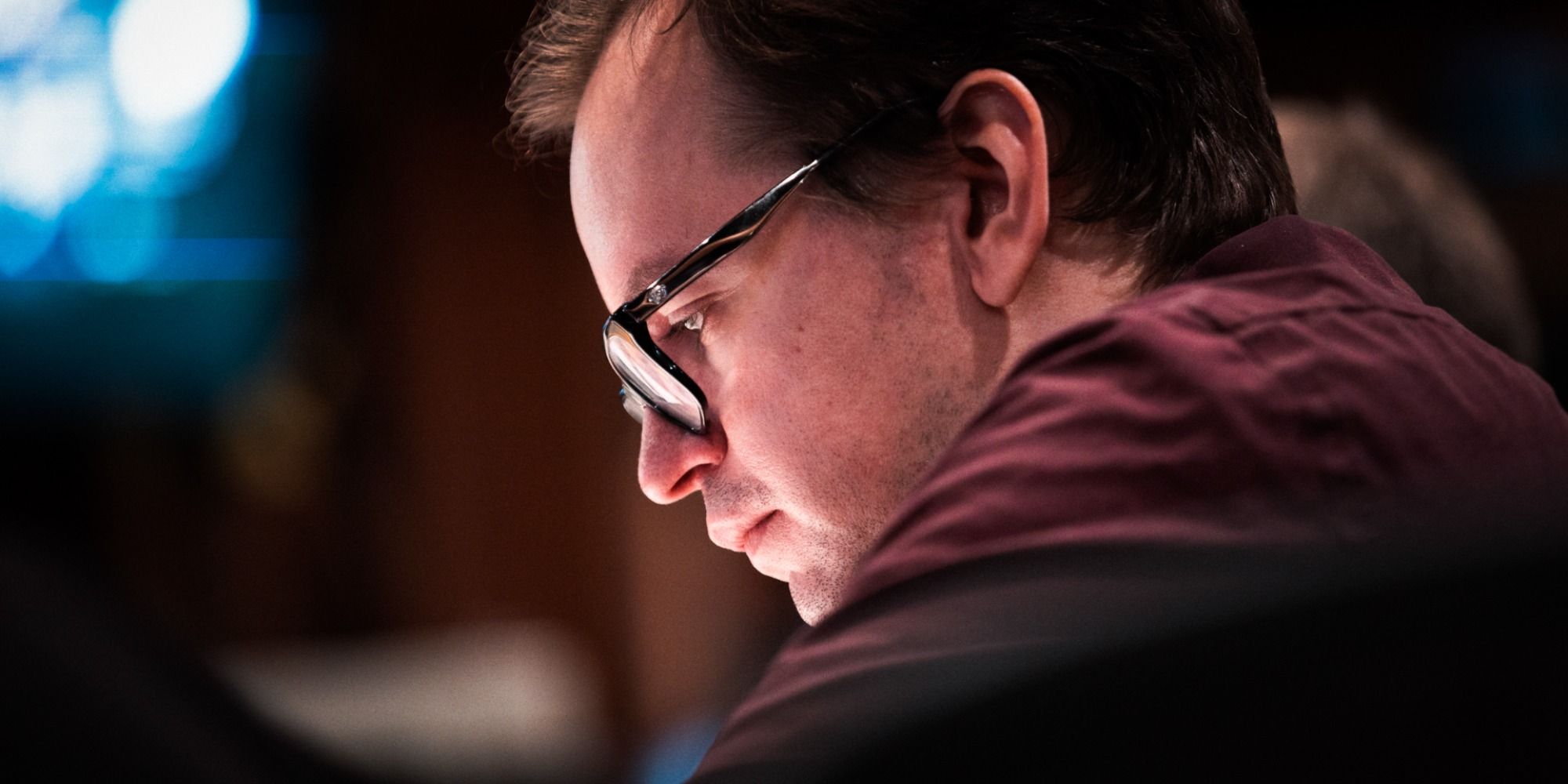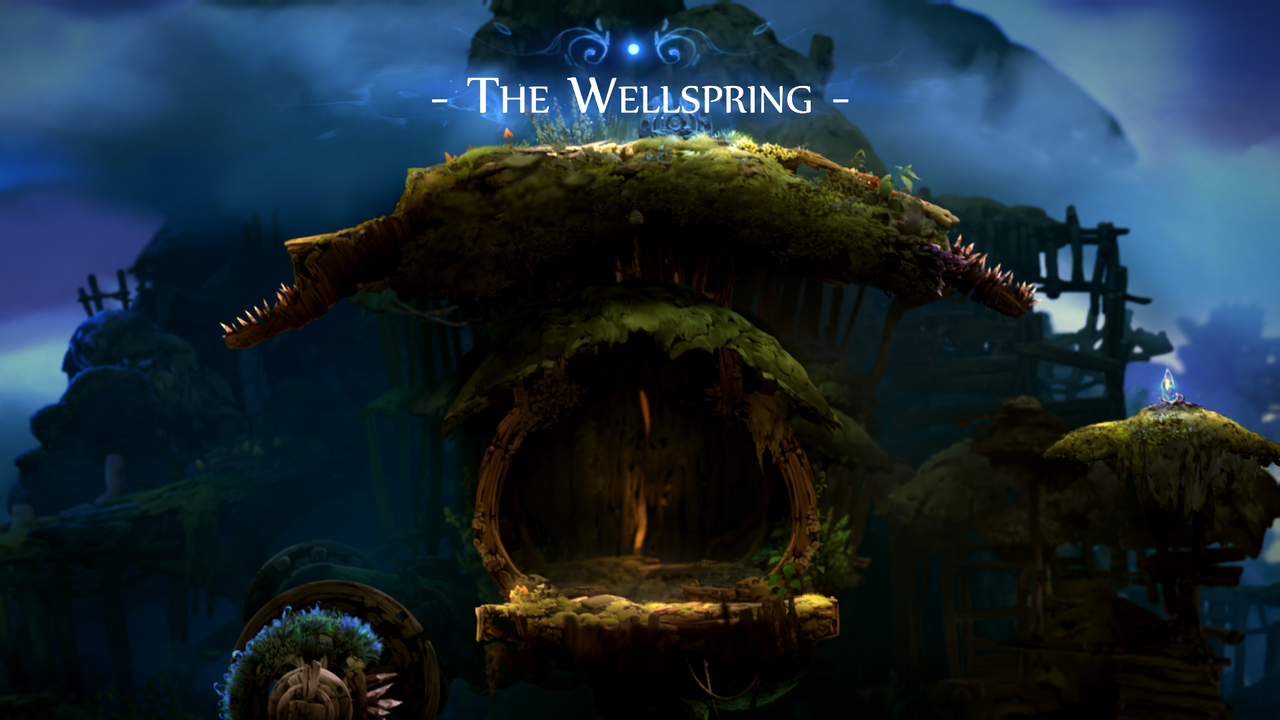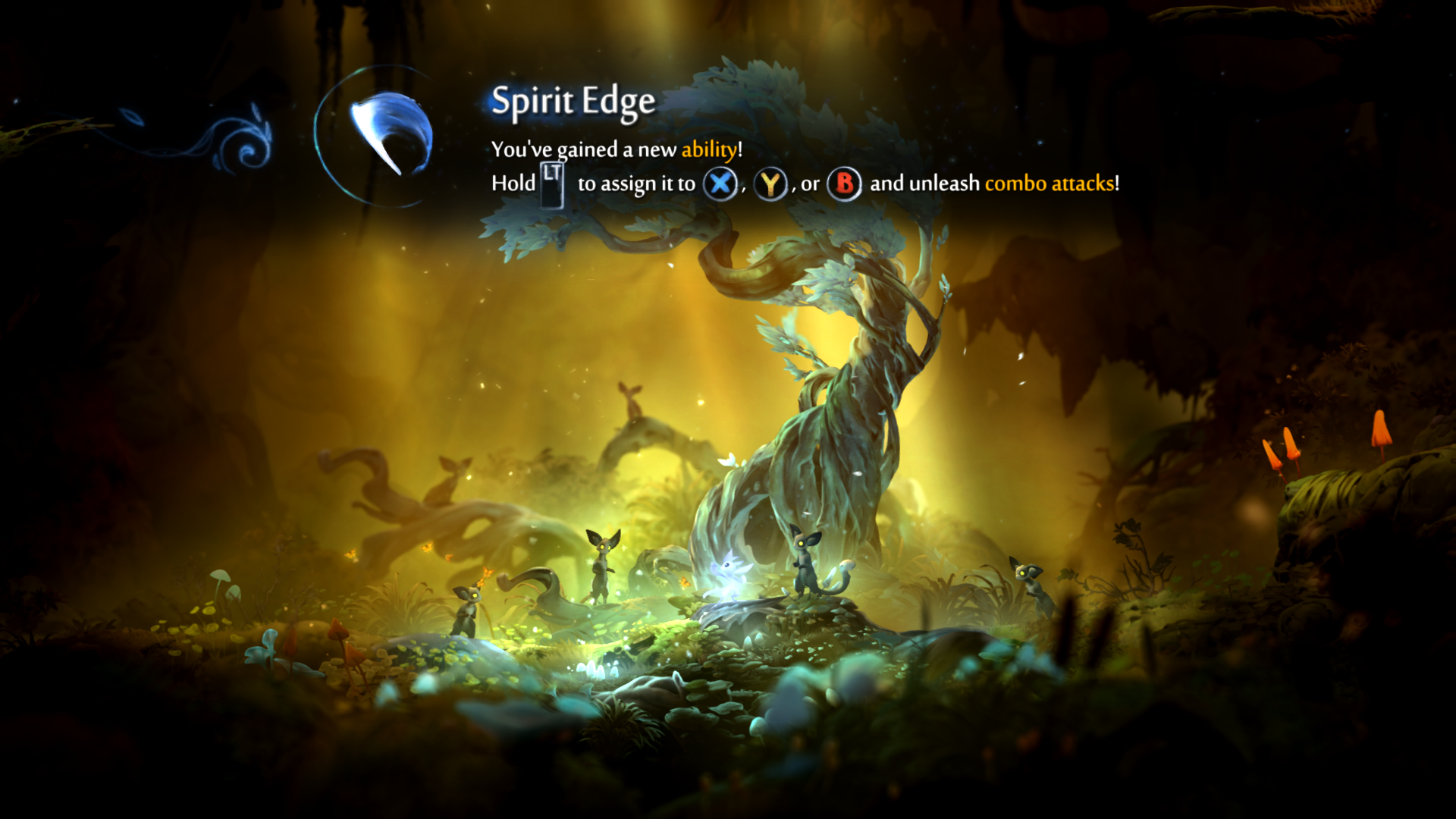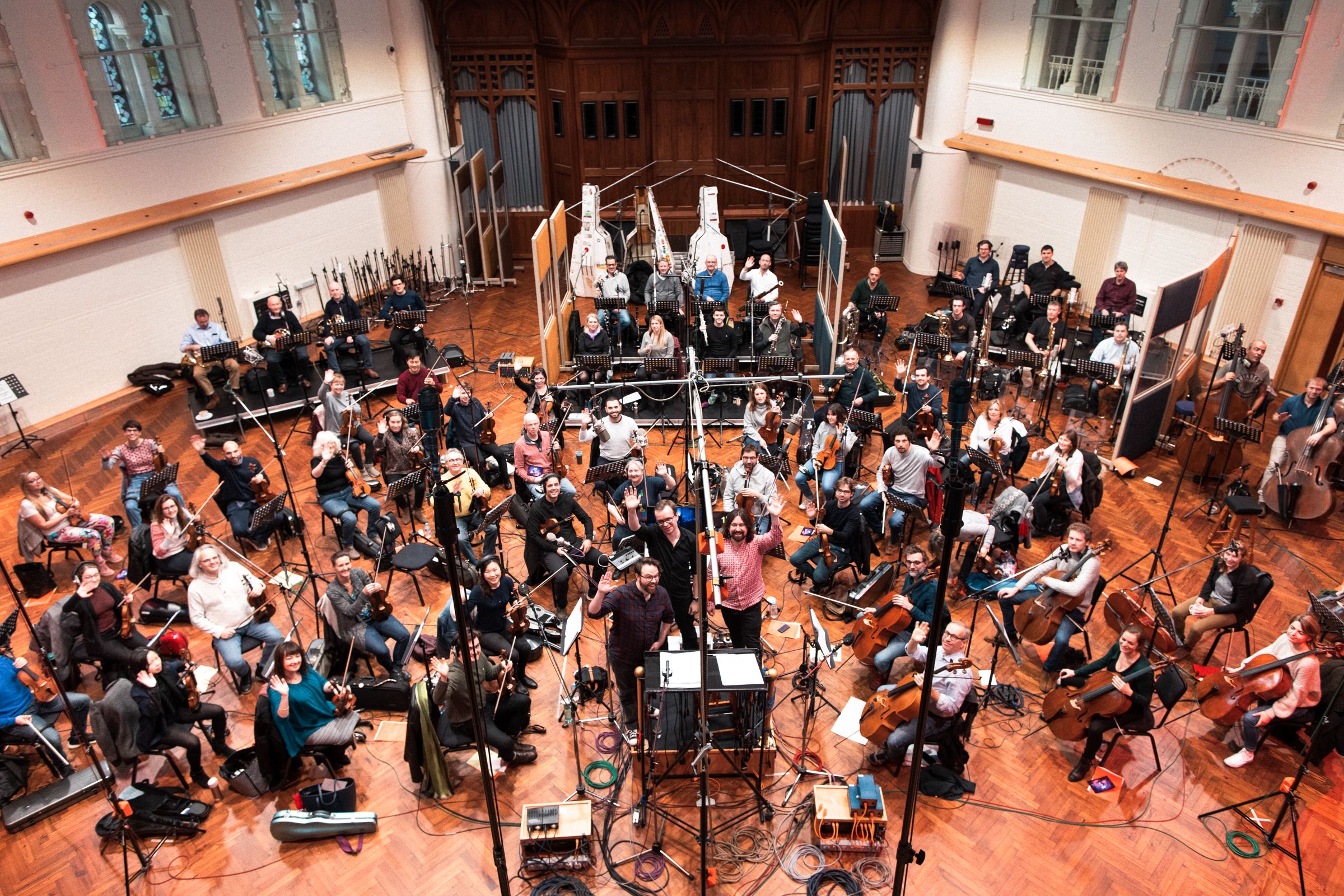From the droning aulos of Immortals Fenyx Rising to the breezy oboes of Ori, there’s a certain quality that makes Gareth Coker’s work instantly recognizable. Even his influence on Halo Infinite - which marks Coker’s first gig on Xbox's flagship series - is identifiable off the bat. There are reasons for this impressive consistency across so many different projects, but the main one - and the one we continuously return to in our 90-minute chat - is that there’s an important difference between games having great music and great game music.
Coker started working in the games industry back in 2012, around three years after moving to LA. He describes his first two years after university as the “typical get whatever gig you can and try to survive for as long as possible in the entertainment industry” mentality, but in that third and all-important year, Coker was brought on board for the game that would go on to kickstart his career: Ori and the Blind Forest.
“I think I gravitated towards games because it's the medium I know best,” Coker says. “As a kid, I feel like I played more games than I watched film and television. It's not that I don't want to do film and television - and you know, I'm moving into television now. It just felt like the easiest place for me to get started. I've played so many games and I've become aware of music and audio in games. I thought I might have a good sense of what a gamer wants when they play a game I happen to do the music for.”
This sense of knowing what a person wants to hear has guided Coker’s process for scoring games over the last nine years, to the extent that he doesn’t just write the music based on a brief - he plays the game, writes the songs, and plays the game again with the songs included. If he thinks it’s a bad fit, he doesn’t send it to the devs.
“If I didn't like the music, how can I expect anyone else to like it?” he asks. “Some of the people who I've worked with are like, ‘Oh, yeah, you can just send us your experiments.’ No, I don't want to send you my experiments, I want to send you the stuff I think is good. I'm like, you didn't really hire me for that, you hired me for my vision.”
If you’ve ever played a game Coker has composed for, that sentiment should be pretty clear. He’s always extremely in sync with the art, animation, story, and everything else that goes into creating a cohesive experience, mostly from spending time playing through the game over and over again in order to get as good a feel for it as possible. This is best evidenced by his work on Ori, for which he drew up an entire musical map - sort of like cartography by sound. If one area was in D minor, the adjacent biome would be in a related key like F major.
“There are exceptions to this. When you are within an environment, you're looking for opportunities to change the music. [At] the beginning of the game, you're waking up in the marsh and eventually work your way through the environment. And you get to the scene where Ori finally gets the sword, and that triggers a cutscene. You've had a loop playing the whole time and then you have a cutscene, which is a one-off piece of music. Now the piece of music has a start and end point - if you actually want to change the key of the music, that is your opportunity, because you're never going to hear that piece of music again.”
The reason this is so fascinating is because of Ori’s status as a Metroidvania - you can move from biome to biome in whatever order you like and the score needs to be able to react to that. Coker says this was probably the biggest difference for him between Blind Forest and Will of the Wisps, because the improved tech made it much easier to implement smooth crossfading. His favourite example of this is the interior part of the Ancient Wellspring, which involves a rotating platforming section where the melody goes up a pitch with each revolution to simultaneously induce tension and indicate progression in a subtle but effective way.
“Did I need to do that?” Coker asks. “Definitely not. But it's still satisfying for the people who can play it really quickly, because they're hearing the music change no matter what. But also, for the people who maybe are struggling to get through that area, they at least have music catering to them. It's not just one loop playing for the whole room, there's a sense of progression. That’s just one room in one environment, and it's that kind of thinking that takes place throughout the entire game. I could literally talk you through every single environment because it's burned into my brain. I have a map of the entire game inside my head, I can tell you what music plays on any screen in any act of the game, because I put the hours in. It's so important to have a deep understanding because you can deliver the player a much better experience.
“Skyrim is one of the most famous soundtracks ever made - it's constantly up there on Spotify. I don't mind going on record to say that it has… not stellar implementation. But people still think the music is amazing because you're always immersed, and that's really what matters. That game is so immersive even ten years on from its release and it's because there's so much being thrown at you and the music is there to sell a mood and a feeling, and that feeling almost never disappears throughout the game. That's the kind of thing I'm looking to sustain throughout the player's experience. The level of immersion can never be broken in a game like Ori.”
One example Coker likes to point to when it comes to accomplishing this comes from Blind Forest, which continuously received bug reports from Microsoft’s quality assurance team. Specifically, the issue being flagged was tied to pickup jingles that play when you obtain a new ability.
“The feedback I kept on getting [was], ‘Can you make them more Zelda-like?’” Coker says. “And I inquired like, ‘What's that mean?’ And they were just like, ‘More Zelda-like,’ and I'm like, okay, I'm just gonna have to look this up myself.
“And I was like, ‘No, I'm not gonna do that, because it's just not Ori.’ This is not a bug, this is a personal opinion, and it's not my vision, and it's actually not anyone else's on the team. It just kept on getting shunted back and forth. I'd send it back to Microsoft and they were like, ‘No, you have to do this’ and I'm like, ‘No, I don't.’ I was willing to die on that hill if I had to because I did not think it was appropriate for us. We're not making Zelda. I think if we'd had those jingles in the game, they’d become very off-putting because it would take you out of the emotion and remind you that, yes, look at you, you're playing a video game. Do you really sit during Ori and think, ‘Oh, yes, I'm definitely playing a video game,’ or do you just want to kind of get lost in the world? I think it's the latter.
“Game music isn't just supplying music for the game. Generally speaking, every game has excellently produced music. There are usually some good melodies, or it's well produced, or sounds expensive or whatever. There's a lot of great music that exists in games. I think there's far less great game music. There's a subtle distinction - it's one thing to just supply great music. [But] the actual thought process and how deep you want to get in terms of how it syncs up with the player experience? That's a whole aspect to our job I think is going to be the differentiator between good soundtracks and great soundtracks for this next generation of gaming.”
Speaking of the next generation of gaming, Coker is currently co-composing the soundtrack for Halo Infinite alongside Curtis Schweitzer and Joel Corelitz. Interestingly, aside from Darksiders Genesis - which Coker was largely given free rein on - he has traditionally worked on new game worlds: Ori, Immortals Fenyx Rising, and ARK: Survival Evolved. Obviously Halo, a series that has been a constant juggernaut for two decades now, is a pretty big project to take on when it comes to balancing consistency with what came before and fresh ideas designed to steer it in a new direction.
“The first thing you have to do is learn the language,” Coker explains. “With Ori, I created a musical language. ARK’s a musical language - it’s just kind of what happens. I'd like to think that when people hear the Ori music they know it sounds like Ori. There's been quite a few composers who contributed to the Halo franchise over the years - all built on Marty [O’Donnell] and Michael [Salvatori]’s work. And you have to go in and look at what makes Halo music Halo. Why do people like this? Why does it work with the gameplay? And that involves listening to the music, trying to find out what’s in the music, what about the music is resonating with people. But also what about the music is resonating with people when it's in the gameplay?
“The first thing you notice is space. Not sci-fi space, I'm talking about space between the notes. Considering it’s an action game, the music is not dialled up to ten the whole time. With some action games, the music is balls to the wall the whole time. Don't get me wrong, there are some epic tracks in Halo. But one of the signatures, I think, is that the music has some space. To me, the music has a confidence to it that means it doesn't have to try too hard.”
Coker also points out that Master Chief being a “badass” contributes to why this works so well. As opposed to a game like Doom Eternal, where the Slayer moves at an intense pace mowing down demons to filthy djent riffs, the reaction NPCs have when they see Master Chief arriving on the battlefield is in and of itself a prompt to let subtler music do heavier lifting. This is also complemented by a process called spotting, which focuses on the placement of music as opposed to just the melodies themselves. Coker points to the Will of the Wisps trailer shown at E3 2017 as an example of spotting done right.
“At the end of the trailer, Ori walks on screen and puts his arm around Ku,” Coker says. “We had a massive discussion in the team about when the theme should come in. And everyone without exception on the team was like, ‘Oh, the theme has totally got to come in the millisecond Ori appears on the visual.’ And I'm like, ‘No, you're wrong.’ I literally said, ‘You're all wrong, the theme has got to start when he puts his arm around Ku.’ Because that's what Ori is actually about. This game is not about Ori, the game is about connection.
“Everyone was like, ‘No, you're wrong.’ And I'm like, ‘Fine. I'm gonna make both and we'll see who's right.’ So I gave them a version, which was what the entire team wanted. And I was like, ‘This is the version I think is no good.’ And the difference is only two or three seconds. And I just played them the B one, which was mine where the theme comes in, and the team were like, ‘Oh, yeah, it's clearly better.’ Just like a three second difference. I barely changed the music. It took me like ten minutes to get it.”
As Coker puts it, the point of emotional resonance occurs when Ori puts his arm around Ku because this is something all of us can relate to - connection in the midst of tragedy. This is where the scene’s power comes from. It’s also why the best film and television soundtracks are so revered - they know how to manage placement and timing on top of putting together great compositions.
This conviction to always serve the scene is also largely why Moon Studios succeeded in implementing such an affecting ending in Will of the Wisps. While some people weren’t particularly pleased with it - I won’t go into why, because spoilers - Coker says that it was intended to be difficult.
“If you're feeling something because it's difficult to deal with, well, then we've succeeded,” he explains. “Some people take that as, ‘Oh, I don't like ending.’ And I was like, no, you didn't like how you felt at the end. Subtle difference. Our job is only to deliver the story that we think is best, and if you feel something, whether it's good or bad… I think there are two ways to look at our ending. You can look at it glass half full or glass half empty. You can end up feeling very happy or very, very sad. And I think that's quite hard to pull off. I think we did pull it off. I understand why some people probably have a hard time processing it. But I'm like, ‘Look, at least you're processing something - I'd rather you feel something than nothing at all.’”
All of these different ideas - to write good game music as opposed to great music in a game, to make people feel something, to ensure that there is a sense of coherence across all of the artistic disciplines involved in design - are apparent in all of Coker’s work. One particularly striking example can be found in Immortals Fenyx Rising, where Coker decided to record conventional Greek instruments in unconventional ways.
“If you go the hyper realistic route - you do all the research, you study the scales, the harmonies, the melodies - and just put that into the game, it doesn't work because it's actually not immersive,” Coker says. “It's too on the nose - ‘You are in Greece now.’ You're not in Greece, you're in a fantasy depiction of Greece. We wanted to combine these ancient instruments with some of the magical elements that are prevalent, with almost the Disney Fantasia approach, very over the top. Because look at the game - it's ridiculous. When you kill an enemy it goes flying in the distance. The world is completely made up. You've got physics that are completely exaggerated. You've got Zeus and Prometheus bantering with each other throughout the whole game. Where do the Greek instruments come in? The great thing about Greece is that they basically invented the Western scale system as we know it.
“The way we got around this was, we're going to take all of these old instruments - the lyres, the aulos - and play them the old way, but produce them in a 21st century way by adding reverbs, long echoes, and weird effects on them. Because realistic, gritty aulos has quite a harsh sound. What is harsh about Immortals Fenyx Rising? Absolutely nothing. You notice a theme with literally everything I'm talking about - how does it match the gameplay? It feels like the most basic thing in the world. Someone could have done the most authentic Greek soundtrack ever, and it probably would have worked okay. But it would have been, in my opinion, great music in a video game as opposed to great game music. I think that's proven by the fact that we've had three Greek games in the last two and a half years, and they all sound completely different - God of War, Hades, and Immortals Fenyx Rising. And Assassin's Creed Odyssey - four! They all sound completely different, and I think that illustrates my point. Hades has appropriate music for Hades. You can have a bunch of different approaches, even within the same mythological settings, and they can all be successful.”
Coker is currently hard at work on ARK, which is in the process of being translated to television. Coker started work on Survival Evolved almost immediately after finishing up with Blind Forest - he sent his initial pitch, which was one track that eventually became the main theme, just four days after the first Ori game came out. Originally, he only provided around 15 minutes of music to the game, but several expansions later the devs wanted another 90. Coker had no idea how huge this project was about to become.
“I was like, ‘Where do you want to record it?’” he tells me. “I hadn't really been paying attention and I didn't know much about the company. And [they were] like, ‘Just send us the medium budget and the nice budget.’ And I did that and they went for the nice budget, and I'm just like, ‘Great, well now we're recording at Abbey Road with a 93-piece orchestra,’ and many four letter words, because I've never done that before - we're talking about recording in the same room as The Lord of the Rings, Harry Potter, and Star Wars.
“In 2019 they started talking about an animated series - I'll believe that when I see it, it's not gonna happen. And the composer of the game never gets to work on the TV show anyway, so I'm just gonna put that to one side. And then they started telling me about the cost and who's involved, [I was like], I don't believe this is really happening. That was my internal reaction. Then the trailer ends up on my desk and I'm like, well, there it is. I guess this is happening.”
At just 37 years old, the stories contained in this piece tell you everything you need to know about how much success Coker has enjoyed - and earned - over the last nine years. Still, there are certain projects he’d love to work on given the opportunity. For one thing, he’d gladly go back to Ori “if the story was there.”
In terms of existing series, he’s not quite sure Doom is up his street, but he’d love to work on Assassin’s Creed - “to have an experience in that world and be able to put my own stamp on a part of the world and see what I can do with it.” He’s also keen to work on Mass Effect some day.
“I actually have started work on a very exciting project, but it’s still a long way out,” he tells me. “It's not been announced yet. But it's the kind of thing where I get to do what I did [with Ori] - don't worry and build a world from the ground up. Except it's a really large triple-A setting, so it's very daunting as well. Being brought on this early for a triple-A project to create the world with the team is highly unusual. It just allows me to experiment and try lots of different things out. I'm hoping that's going to be more prevalent as the game industry moves forward, because as I alluded to at the beginning, I think that's the difference between a good soundtrack and a great soundtrack. I just like to spend time with the game and know where all the best moments are, and how things need to work.”
As to whether or not this mode of development is sustainable, Coker reckons it depends on how each company is built. Triple-A development would need to see some “significant restructuring” in order to opt for a holistic approach to design where the team are all on the same page from very early on. Regardless of this, though, Coker has big plans for the future.
“I told myself, ‘When I get bored of this, that’s when I'll quit,’” Coker says. “When I get bored of seeing people react to my own work, it means it means I've stopped caring. So because I do care, and I want to make sure people have an emotional response to the stuff we're working on - that's what keeps me going.”




